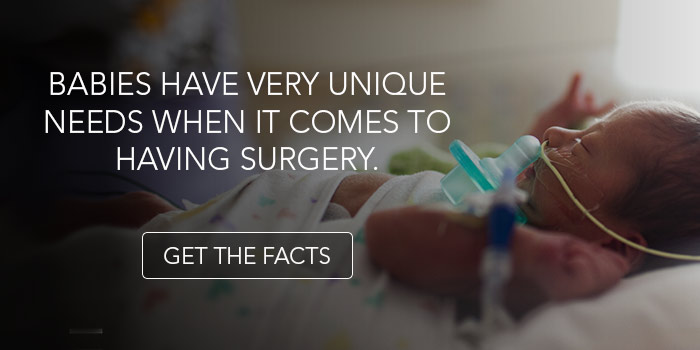Facts About Babies and Surgery
- Most babies that need surgery are born with a specific problem.
- Some problems must be surgically corrected right away, such as gastroschisis, which requires surgery within the first hour following birth, and omphalocele, which must be corrected within the first few days. Other problems can be treated later.
- Premature babies are at a higher risk for needing surgery.
- A pediatric-trained surgeon has special expertise in the anatomy and physiology of babies.
- Some conditions requiring surgery may be identified during prenatal testing. Parents can meet with a surgeon to plan for a surgery that will take place after the baby is born.
- Babies have very unique needs when it comes to surgery because of their small size and rapidly changing metabolisms. They should be cared for in a place that uses baby-specific guidelines for pain management, anesthesia, medication dosing, hypothermia prevention, wound care, feeding, and growth and development.
- Surgery can be stressful for babies, especially because caregivers cannot fully explain to the infant what will be happening.
- When preparing for a baby’s surgery, it is important to keep the baby’s routine the same and make sure the baby and family are well rested for the day of surgery.
- Bring the baby’s favorite security items to the hospital. This will help create a more familiar environment.
- Make plans for at least one parent or guardian to be with the baby as much as possible so that he or she will have a familiar touch, voice and smile.
- The brief period before surgery when the baby cannot eat or drink can be difficult. Plan to distract, rock, walk and comfort him or her during this time.
- Caregivers need to take care of themselves during this stressful time as well by asking friends and relatives for help and trying to remain positive. Being positive and focused on the patient will reduce the baby’s anxiety.















